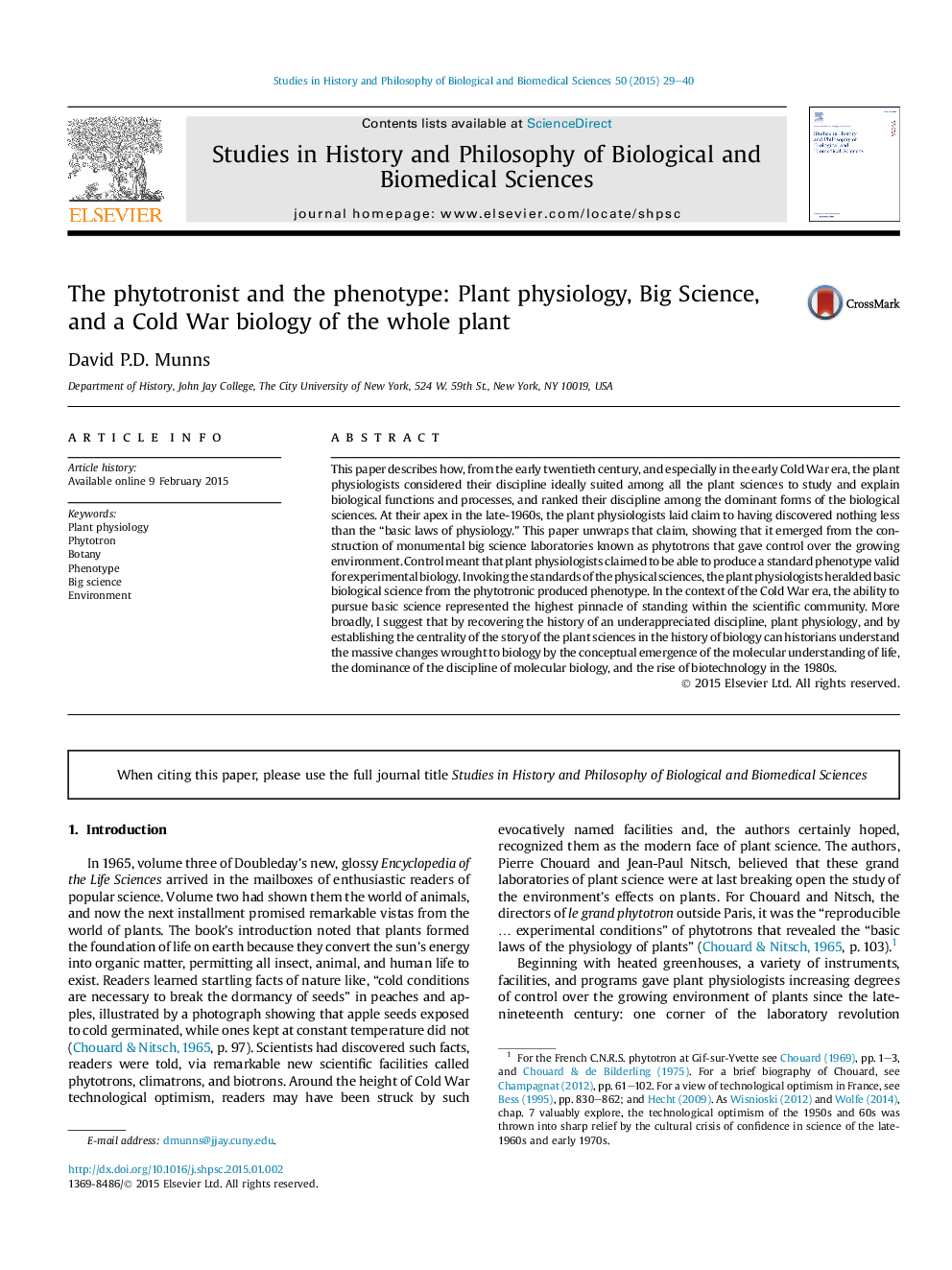| Article ID | Journal | Published Year | Pages | File Type |
|---|---|---|---|---|
| 1161165 | Studies in History and Philosophy of Science Part C: Studies in History and Philosophy of Biological and Biomedical Sciences | 2015 | 12 Pages |
This paper describes how, from the early twentieth century, and especially in the early Cold War era, the plant physiologists considered their discipline ideally suited among all the plant sciences to study and explain biological functions and processes, and ranked their discipline among the dominant forms of the biological sciences. At their apex in the late-1960s, the plant physiologists laid claim to having discovered nothing less than the “basic laws of physiology.” This paper unwraps that claim, showing that it emerged from the construction of monumental big science laboratories known as phytotrons that gave control over the growing environment. Control meant that plant physiologists claimed to be able to produce a standard phenotype valid for experimental biology. Invoking the standards of the physical sciences, the plant physiologists heralded basic biological science from the phytotronic produced phenotype. In the context of the Cold War era, the ability to pursue basic science represented the highest pinnacle of standing within the scientific community. More broadly, I suggest that by recovering the history of an underappreciated discipline, plant physiology, and by establishing the centrality of the story of the plant sciences in the history of biology can historians understand the massive changes wrought to biology by the conceptual emergence of the molecular understanding of life, the dominance of the discipline of molecular biology, and the rise of biotechnology in the 1980s.
